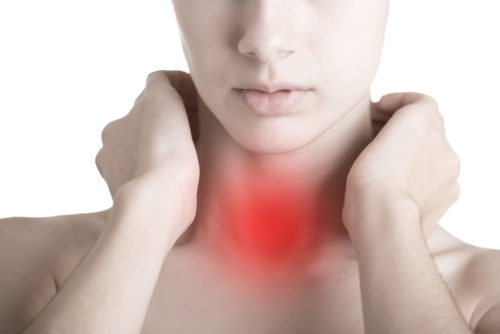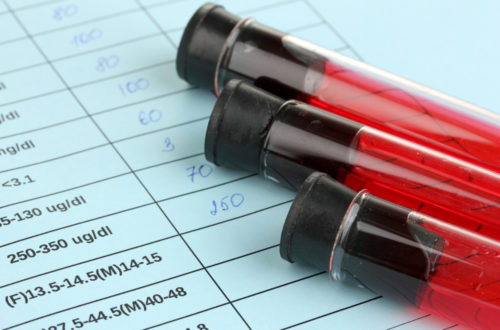I feel hashimoto’s disease is one of the most mismanaged conditions in healthcare. Hashimoto’s is an autoimmune disease where the body’s immune system attacks and damages the thyroid gland.
Like other autoimmune diseases, Hashimoto’s occurs when the body’s immune system confuses the thyroid as a foreign invader like a virus or bateria and it attacks the thyroid. In fact, it can total destroy the thyroid over time. Hashimoto’s is the most common autoimmune disease and it the most common cause of a thyroid dysfunction accounting up to 80-80% of all thyroid cases. Its almost unbelievable that traditional medicine doesn’t normally check for it and doesn’t have any solutions for it ether. For this reason, most people that have been diagnosed with a hypothyroid most likely have hashimoto’s and will suffer with symptoms even thought they are on medications. Many of the people we help are in this position. Luckily, their is hope because there is so much that can be done for hashimoto’s.
Thyroid disease is more common than diabetes or heart disease. ~ American College of Endocrinology
Signs and Symptoms of Hashimoto’s
Hashimoto’s usually causes predominantly underactive thyroid symptoms. Occasionally Hashimoto’s may cause a person to fluctuate between underactive and overactive thyroid symptoms due to the nature of the damage to the thyroid tissue.
Some common symptoms of Hashimoto’s are:
Underactive Thyroid Symptoms:
- Fatigue and lethargy
- Feeling cold
- Excessive sleeping

- Dry skin and scalp
- Depression / lack of motivation
- Weight gain / difficulty losing weight
- Constipation
- Thinning hair
- Loss of hair in outer third of eyebrow
- Waking with a headache that wears off through the day
- Mental sluggishness
Overactive Thyroid Symptoms:
- Heart palpitation
- Trembling (inward)
- nervousness
- Night sweats
- Insomnia
- Racing pulse
- Difficulty gaining weight
How is Hashimoto’s diagnosed? 
It is thought that Hashimoto’s is the most common cause of low thyroid function, but many doctors don’t test for it because the diagnosis doesn’t change the outcome of conventional treatment, instead relying on TSH tests to make their prognosis and monitor treatment.
The conventional approach to diagnosing Hashimoto’s is as follows:
- Thyroid-stimulating hormone (TSH) levels. Levels may be raised in Hashimoto’s, but they may also fluctuate and be normal or low. A single Hashimoto’s patient may have all three of these results over the course of three different tests. Altered TSH may also occur with other forms of thyroid dysfunction, therefore it’s necessary to test antibodies.
- Thyroid antibodies – anti-thyroid peroxidase (anti-TPO) and also anti-thyroglobulin (anti-Tg) antibodies.
- Thyroid ultrasound – usually not necessary in diagnosing Hashimoto’s thyroiditis, but it is useful in assessing thyroid size and to investigate the presence of thyroid nodules.
A positive antibody test confirms an autoimmune thyroid problem and also signifies that it is the immune system not the thyroid gland that needs to be the target for therapy.
The Conventional Approach to Hashimoto’s disease.
Standard treatment is to prescribe thyroid hormone, monitor hormone levels in the blood and adjust the dose of hormone accordingly as the thyroid continues to lose function until it eventually ‘burns out’.
Other medications such as antidepressants may also be prescribed to treat other symptoms of Hashimoto’s.
Functional Underlying Triggers of Hashimoto’s
There is no clear answer to what will trigger an autoimmune disease in a person, but there appears to be some conditions that are favourable for the development of Hashimoto’s. From a functional approach, it is very important to identify the trigger for the immune response in the individual person.
Hormones
Fluctuations in oestrogen may be a trigger in people who are genetically susceptible and have existing immune system issues.
Pregnancy and peri-menopause may contribute to developing Hashimoto’s due to the shifts in hormones during these times.
Insulin resistance – a condition where the body’s cells become resistant to the hormone insulin due to a high carbohydrate diet – leads to elevated testosterone. Elevations in these two hormones leads to inflammation and immune system problems, both of which can predispose someone to developing an autoimmune disease.
Insulin resistance is found in polycystic ovarian syndrome (PCOS) and diabetes, and may be present many years before diabetes is diagnosed.
Hypoglycaemia can also cause hormone surges that create the same problems for the thyroid. If you have more energy after meals, crave sweets, chocolate or carbs between 3 and 5 in the afternoon, or have trouble staying asleep, then you may need to take steps to improve your blood sugar regulation.
Toxins
As in all cases of autoimmune disease, the potential role of environmental toxins needs to be considered. Heavy metals such as mercury and mould toxins (mycotoxins) are the two most common toxins I see in people who have autoimmune disease.
Environmental toxins are found in most people’s bodies now, and many people have toxins in their system without the immune system becoming over-active.
What seems to be most important is to identify if the immune system has lost tolerance to the chemical or toxin and we assess this by testing for antibodies to chemicals or heavy metals.
For example, someone may have very elevated levels of mercury, but if they don’t have antibodies, this will be less clinically significant (from the autoimmune perspective) than someone who has trace levels of mercury but elevated antibodies to mercury.
In the second scenario, the immune system has organized a response to the toxin, and it’s this activation of the immune system may be an underlying cause to the activation of autoimmune mechanisms in the body.
Vitamin D and Autoimmune Thyroid:
It appears that people who have autoimmune thyroid conditions such as Hashimoto’s, often have Vitamin D deficiencies. On top of that, it appears that there’s a tendency to have a problem with the Vitamin D receptor on their cells, due to a specific gene variant. If this is the case, then their body won’t be able to respond as well to a normal dose of Vitamin D, and larger doses will need to be taken (orally or via sun exposure) to achieve the same effect.
Chronic viral or bacterial infections.
Autoimmune thyroid disease has also been associated with a variety of infectious agents, including Rubella, Rubella, Epstein-Barr virus, Retrovirus, Influenza B virus, Coxsackie virus and Yersinia. If the initial blood test indicates infection, then I run further more comprehensive testing to investigate further.
Stress and Hasimoto’s.
I’m not sure it’s possible to overstate the impact that stress has in the development of autoimmune diseases.
Stress does many things to upset the immune system. It suppresses healthy immune function, promotes inflammation, promotes imbalances of the immune system and creates problems with the gut lining – an important factor in developing any autoimmune disease.
Addressing stress and adopting strategies to transform stress is a very important part of the healing process for anybody with an autoimmune disease.
Gluten and Hashimoto’s.
There are now numerous studies from multiple countries linking Hashimoto’s with gluten reactivity.
The molecular structure of gluten and the thyroid tissue are structurally similar, and it’s thought that the body mistakes the thyroid tissue for gluten, attacking what it perceives as a threat. Strictly removing gluten from the diet is critical then, as this attack will continue as long as the ‘threat’ is being eaten.
My Approach to Hashimoto’s.
I’ll be discussing some general guidelines here in this post, but autoimmune disease is extremely complex, and it’s also highly individual.
No two people’s Hashimoto’s is ever the same, even if the diagnosis is identical, and so my approach to every person I see with Hashimoto’s is necessarily different.
I begin every new patient relationship by taking a detailed medical and health history.
I also like to run, a comprehensive e blood screen to look for functional indications of problems such as inflammation, hormone disturbances or viral infections.
Hashimoto’s is an immune disease that is affecting the thyroid, not really a thyroid disease.
Therefore the immune system must be addressed in order to successfully modulate Hashimoto’s and enjoy a better quality of life.
We use the 5-R framework to investigate, because the more we can understand what’s going on upstream of the diagnosis, the better we know where to intervene.
- Remove Gluten and Dairy from the diet, and investigate other foods that may be causing problems.
- Heal the gut, and any other barrier tissue that may be inflamed and ‘leaky’ such as the lungs or the brain. Intestinal barrier integrity is very important in autoimmune disease. When this barrier becomes too permeable, undigested particles of food, bacteria, parasites, mould or environmental toxins are able to cross over into the body. This intrusion triggers a complex immune response.
- Identify and address nutrients that are required for health, such as vitamin D and Selenium
- Investigate and address infections.
- Address Stress.
- Support the Immune System.
Immune Balance. Th1 vs Th2.
The ultimate aim, when addressing an autoimmune disease, is to restore balance to the immune system.
The foundation of my care, is to support overall health which will include blood sugar regulation, addressing infections, gut health and stress management among other things.
Beyond these basic, primary strategies however I use natural therapies to promote balance in the immune system.
A very important part of this is balancing two parts of the immune system known as TH1 and TH2.
When it comes to managing an autoimmune disease, it’s important to know if you are TH1 or TH2 dominant.
The majority of autoimmune diseases are thought to be TH2 dominant most of the time, except Hashimoto’s, which is TH1 dominant 80 – 90% of the time.
However it’s not accurate to assume, as these are generalizations and do differ from person to person.
Th1: Th1 cells usually deal with viral infections and some bacterial infections. They are the body’s first line of defense against threats that are actually inside our cells. This is known as cell-mediated immunity.
Th2: TH2 cells deal with bacteria, toxins and allergens that are found in the blood or other body fluids – outside the cells. This is known as humoral-mediated immunity.
Imagine that TH1 and TH2 are sitting on a see-saw. Now imagine that one of these is big and fat, and so the see-saw is tipped in its favour.
The way that I address balance is to support the weaker side with natural compounds to beef it up a bit in order to level the see-saw, after first testing to confirm which is the dominant arm.
Having a diagnosis of Hashimoto’s or any other autoimmune thyroid disorder does not mean you have to suffer on-going symptoms.
To book a consultation with me click here
